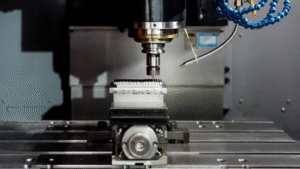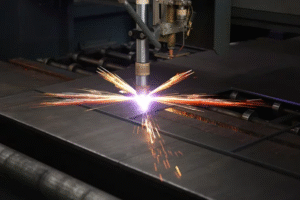
ntering a rehabilitation center for the first time can feel overwhelming. Whether you’re taking the step for yourself or supporting a loved one, knowing what to expect in the initial days can ease anxiety and set realistic expectations.
Addiction treatment is a journey, not a one-time event. The first week is critical—it’s when the body begins to detox, the mind starts to reset, and a new foundation for healing is laid. If you or someone close is considering enrollment in a recovery facility like a Nasha Mukti Kendra in Jammu, this guide will walk you through the essential components of what that first week may look like.
Why the First Week Matters
The first seven days of rehabilitation serve multiple purposes. It’s a transition period where individuals shift from active substance use to structured healing. This phase is crucial for:
-
Stabilizing physical health
-
Introducing treatment routines
-
Building rapport with counselors and peers
-
Setting goals for recovery
-
Breaking old mental and emotional patterns
During this week, emotions may run high, and the body may undergo withdrawal. But it’s also a time of hope and potential—a turning point toward sobriety.
Day 1: Intake and Assessment
What Happens:
When you first arrive at a rehab center, you’ll go through an intake process that includes:
-
Personal interview and case history
-
Medical examination
-
Psychological evaluation
-
Substance use screening
-
Consent forms and orientation
The staff will ask detailed questions about your physical health, mental state, history of substance use, and personal challenges. At facilities like a Nasha Mukti Kendra in Jammu, this information helps professionals design a customized treatment plan tailored to your needs.
How You Might Feel:
-
Nervous or uncertain
-
Relieved to take the first step
-
Anxious about withdrawal or the new environment
Most centers will assign you a case manager or counselor who becomes your main point of contact throughout treatment.
Day 2–3: Detox and Physical Stabilization
What Happens:
If the body is dependent on substances, medical detox begins. This involves safely removing toxic substances under medical supervision. Common symptoms during detox can include:
-
Nausea and vomiting
-
Headaches or body aches
-
Anxiety or depression
-
Insomnia or fatigue
-
Cravings and irritability
In a professional setting like a Nasha Mukti Kendra in Jammu, detox is closely monitored to ensure safety and comfort. Medication may be provided to ease withdrawal symptoms.
How You Might Feel:
-
Physically uncomfortable or sick
-
Emotionally raw or drained
-
Gradually more clear-headed as substances leave your system
It’s important to remember detox is temporary—and necessary—for long-term healing.
Day 4–5: Orientation to the Program
What Happens:
As the body begins to recover, you’ll start attending structured activities such as:
-
Group therapy sessions
-
One-on-one counseling
-
Daily routines including meals, hygiene, and recreation
-
Introductory classes on addiction, coping mechanisms, and relapse prevention
You’ll also be introduced to rules and responsibilities such as attendance, behavior expectations, journaling, or participation in chores—essential components of a disciplined and focused environment.
Facilities like the Nasha Mukti Kendra in Jammu often blend traditional methods with modern therapeutic practices, helping patients ease into the routine while fostering self-awareness and responsibility.
How You Might Feel:
-
Emotionally exposed, especially during group sharing
-
A bit restless or bored adjusting to a new schedule
-
Slightly more confident and hopeful
Day 6–7: Emotional Processing and Goal Setting
What Happens:
By the end of the week, most individuals begin adjusting to the rehab routine. At this stage, deeper emotional work begins. You might:
-
Reflect on root causes of addiction
-
Identify triggers and high-risk situations
-
Start working on a personal recovery plan
-
Set short-term and long-term goals with your counselor
Some centers also offer family therapy or allow limited, supervised communication with loved ones by this stage.
At a Nasha Mukti Kendra in Jammu, such emotional processing is supported by trained therapists who provide safe spaces for sharing and healing. You may also participate in yoga, meditation, or wellness activities that help rebuild mental strength.
How You Might Feel:
-
Tired but more emotionally balanced
-
Encouraged by small personal victories
-
Determined to continue the recovery process
Common Fears in the First Week—and How to Overcome Them
Fear of Judgment: Rehab is a non-judgmental space. Everyone there is either in recovery or dedicated to helping others recover.
Fear of Withdrawal: While uncomfortable, withdrawal symptoms are temporary and manageable with medical support.
Fear of Failure: Recovery is not about perfection—it’s about progress. One day at a time.
Fear of Loneliness: Group therapy and peer interaction foster connection, breaking isolation.
Rehab centers like the Nasha Mukti Kendra in Jammu are designed to make this transition as smooth and dignified as possible, helping you confront these fears head-on.
Tips for Making the Most of Your First Week
-
Be honest during assessments—it helps create a personalized recovery plan.
-
Participate in group discussions even if it feels awkward at first.
-
Ask questions—staff are there to support you.
-
Follow the routine—consistency is a cornerstone of recovery.
-
Give yourself grace—you’re doing something brave and life-changing.
A Note for Family and Loved Ones
The first week of rehab can be emotionally difficult not only for the individual but also for their family. Many centers, including the Nasha Mukti Kendra in Jammu, offer family counseling or education sessions to help loved ones understand addiction, treatment, and how to provide healthy support during recovery.
Conclusion
Your first week in rehab marks the beginning of a new chapter—a chapter rooted in clarity, structure, and healing. While the process can be intense, it’s also the first real step toward freedom from substance dependence.
If you or someone you love is seeking treatment, a professional and compassionate facility like the Nasha Mukti Kendra in Jammu can provide the medical support, emotional guidance, and structured environment needed to make recovery possible.
Every day you spend in treatment is a day closer to reclaiming your life. You are not alone, and recovery is within reach.



